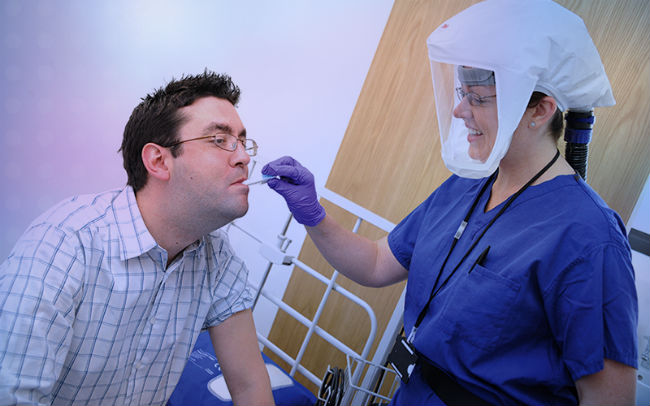
Deliberately infecting healthy patients still happens—ethically
Human challenge studies speed up clinical trials

The most famous clinical trial of all time was Edward Jenner’s experiment with a smallpox vaccine. He had a hunch that exposure to cowpox would protect humans against smallpox. So he immunised James Phipps, the son of his gardener, and then deliberately infected him with smallpox after six weeks and later on as well, another 20 times. “Poor Phipps” did not die, at least not of smallpox, and his cooperation saved hundreds of millions of lives.
This is a milestone in modern medicine, but Jenner’s experiment would not pass an ethics review nowadays. For one thing, Phipps hardly gave his informed consent. However, unknown to most people, Jenner’s methodology is still used. Healthy people are being infected and observed to see whether they become ill (or die). Nowadays the technique is called a Human Challenge Study (HCS).
An article this week in Science profiled some of the leading figures in HCS in the United States. Volunteers are being deliberately infected with infected with malaria, influenza, shigella, dengue, norovirus, tuberculosis, rhinovirus, Escherichia coli, typhoid, giardia, and campylobacter. Researchers try to make the virus as attenuated as possible to minimise the danger and then treat the illness as quickly and effectively as possible.
In many ways HCS is better than standard clinical trials. It is faster, cheaper and can give useful information about potential side effects of treatments.
HCS have been in a bad odour for decades, largely because of Nazi experiments on prisoners in concentration camps. The world was outraged and some of the doctors were hanged, but in the US similar experiments were carried out on prisoners, without their consent. However, researchers like Levine insist that well-regulated, ethical HCS is possible – and is desperately needed.
What about volunteers? Astonishingly HCS researchers do not find it difficult to recruit subjects even for exotic diseases like cholera or dengue fever.
At least one company specialises in conducting HCS trials, hVIVO, a London-based firm. Its “Flu Camp” website tells potential volunteers that they can earn up to £3,450 Pounds by working 10 to 14 days and living in a quarantined hotel.
https://www.bioedge.org/images/2008images/TH_medic4.jpg
Creative commons
https://www.bioedge.org/images/2008images/medic4.jpg
clinical trials
human challenge studies
research ethics
- How long can you put off seeing the doctor because of lockdowns? - December 3, 2021
- House of Lords debates assisted suicide—again - October 28, 2021
- Spanish government tries to restrict conscientious objection - October 28, 2021
